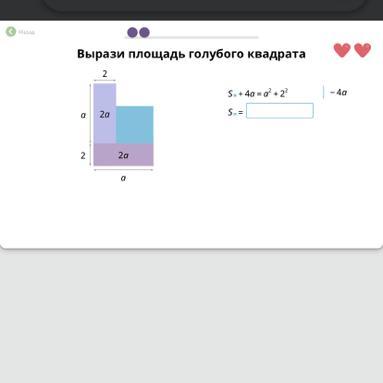Предмет: Математика,
автор: syausyau
учи ру помогите пожалуйста
Приложения:

bertramjeratire:
(a-2)²=a²-4a+4
Ответы
Автор ответа:
0
Ответ:
а^2-4a+4
Пошаговое объяснение:
S=(a-2)(a-2)=a^2-4a+4
Похожие вопросы
Предмет: Английский язык,
автор: dannik2201
Предмет: Технология,
автор: Sanislav
Предмет: Английский язык,
автор: Diana718636
Предмет: Русский язык,
автор: Mastet20k
Предмет: Математика,
автор: ninagordeychik